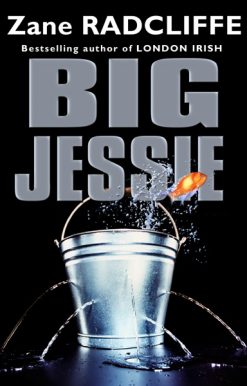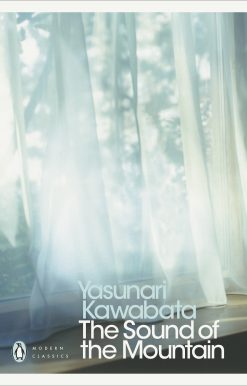Sonora
| by |
|---|
13.00 JOD
Please allow 2 – 5 weeks for delivery of this item
Description
2018 NATIONAL BOOK FOUNDATION’S 5 UNDER 35 HONOREEA fevered, lyrical debut about two young women drawn into an ever-intensifying friendship set against the stark, haunted landscape of the Sonoran desert and the ecstatic frenzy of New York City.Ahlam, the daughter of a Palestinian refugee and his Israeli wife, grows up in the arid lands of desert suburbia outside of Phoenix. In a stark landscape where coyotes prowl and mysterious lights occasionally pass through the nighttime sky, Ahlam’s imagination reigns. She battles chronic fever dreams and isolation. When she meets her tempestuous counterpart Laura, the two fall into infatuated partnership, experimenting with drugs and sex and boys, and watching helplessly as a series of mysterious deaths claim high school classmates.The girls flee their pasts for New York City, but as their emotional bond heightens, the intensity of their lives becomes unbearable. In search of love, ecstasy, oblivion, and belonging, Ahlam and Laura’s drive to outrun the ghosts of home threatens to undo them altogether.
Additional information
| Weight | 0.2 kg |
|---|---|
| Dimensions | 1.53 × 13.97 × 21.09 cm |
| PubliCanadation City/Country | USA |
| by | |
| Format | Paperback |
| Language | |
| Pages | 208 |
| Publisher | |
| Year Published | 2017-3-28 |
| Imprint | |
| ISBN 10 | 1616957921 |
| About The Author | Hannah Lillith Assadi received her MFA in fiction from the Columbia University School of the Arts. She was raised in Arizona by her Jewish mother and Palestinian father. She lives in Brooklyn. Sonora is her first novel. |
2018 National Book Foundation's 5 Under 35 HonoreeRecipient of the American Academy of Arts and Letters Rosenthal Family Foundation Award in LiteratureAn Elle Magazine Most Anticipated NovelPraise for Sonora"This debut powerfully evokes the sense of being an outsider."—The New Yorker"A kaleidoscopic venture for the senses . . . Sonora is an artful construction by a writer of wondrous talent." —New Orleans Review "Mesmerizing." —The Brooklyn Rail "Powerful… Sonora is a poetic coming-of-age story about friendship, identity, secrets, and obsession that will haunt you long after you turn the final page." —Bustle "Assadi writes poetically about the Southwest . . . a mesmerizing take on tripping blindly into adulthood." —The Huffington Post "Sonora is a paean to the vexing process of how a second-generation immigrant struggles to come to terms with herself and history." —Christian Science Monitor "Hannah Lillith Assadi's Sonora is a beautiful desert wind of a novel—wild, plangent and revealing. Fans of Denis Johnson will find in Assadi a similarly edgy and visionary writer. Both disturbing and touching, Sonora is a brilliant debut novel. Assadi is an exciting talent, and a writer to watch."—Shelf Awareness, Starred Review"Sonora is the most eerie and unusual coming of age story I've ever encountered—not a tale of innocence lost, but of innocence never had. In a story steeped in sorcery and curses, Assadi looks to the heavens, wild-eyed and bewildered."—Catherine Lacey, author of Nobody Is Ever Missing "In Sonora, the underworld and the desert are always nibbling at the edges of the two young women’s reality, trying to save them or speak to them . . . Like the biblical tradition of passage through the desert, Ahlam emerges transformed. And so too does the reader." —Tablet Magazine "Sonora is as striking as it is unforgettable."—The Fanzine "With penetrating grace, Hannah Lillith Assadi details the intoxicating precarity of being young and alive and desperate to change. Sonora is unforgettable and deeply felt, the type of book that brings you close, infiltrates you, and leaves you with the sense that you've just lived an entire life." —Alexandra Kleeman, author of You Too Can Have a Body Like Mine"In Sonora, Hannah Lillith Assadi documents, with lyric ferocity, the agony, love, and bafflement of belonging to a family. A scorching story of youth and the losses and sorrows of growing up estranged." —Ben Marcus, author of Leaving the Sea"Assadi's characters are on a trip, as is their author, and Sonora, a pleasure to read, is both a beginning and about a beginning—an origin story for the writer and the reader." —Donald Antrim, author of The Emerald Light in the Air "Landscape becomes dreamscape in Assadi's evocative and provocative exploration of a world divided. Written with masterful artistry, Sonora is, in equal parts, a beautiful and intelligent novel." —Binnie Kirshenbaum, author of The Scenic Route"Hannah Lillith Assadi's Sonora is a mystical and haunting landscape and she guides us through it with boundless grace and sharp, luminous poetry. This extraordinarily assured debut novel feels both old and timeless, like the desert and New York City, while remaining fresh and urgent and impossible to put down. Here we have a compelling cast of young and old, strangers and friends, lovers and family, immigrants and natives, as they try to find their place in a vast and complicated country." —Robert Lopez, author of Kamby Bolongo Mean River"Assadi uses her words like a painter, coloring the beauty of the desert with gorgeous descriptions of saguaros, palo verdes and bougainvillea." —Phoenix Magazine "Unique in its portrayal of a Jewish-Palestinian family . . . [and] universal in its depiction of the quest for identity, for love, for belonging."—Nimrod International Journal Online "A lyrical meditation on the confusion and awe of growing up that is made beautifully strange by the desert's haunting presence . . . both typical and painfully, relatably fresh . . . Lyrical, raw, and moving."—Kirkus Reviews"This poetic, multicultural novel will enchant younger adults or anyone who has ever felt out of place in the world." —Library Journal, Starred Review "Wise and poetic . . . Glimpses of the otherworldly abound, alongside an abiding interest in the cosmos, and Assadi’s lyrical prose nicely complements these preoccupations with the unreal or the ungraspable. The structure, moving back and forth in time and space, adds a sense of the magical to a sometimes tragic but always beautiful coming-of-age story." —Publishers Weekly"Assadi’s first novel is—like Ahlam’s dreams—fevered, fragmented, and impressionistic . . . lushly poetic . . . will interest those looking for a stylish read." —Booklist |
|
| Excerpt From Book | 1 Summer I have always missed watching the sun fall down into the desert. It is always so slow. There are no windows in the waiting room. The fluorescence blares on despite the romance of the hour. A nurse greets us, my mother and me, and tells us not to look so worried, that my father won’t feel a thing. There are no other families waiting with us. There is no one to distract us. The doctor promises the surgery will help my father walk without pain. My mother is picking at her cuticles. I shuffle the coins in my jacket like prayer beads and make myself automatic cappuccinos to deliver me from the disinfectant, the syrupy trace of fresh death. The television is on mute. We hear the discordant heart monitors of strangers, their parade of breath. We are fleeting visitors, they are here to stay. No one has died yet. I take my first cigarette break at dusk, and then every half hour after that. There is a sign that prohibits smoking a hundred feet from the hospital entrance, but I walk farther, all the way to where the grass ends and the dirt of the reservation begins. I meditate on a vague mantra, of touching the earth to soothe the soul. The desert, once dark, is slurred with new lights, traffic on the freeway, sirens rushing on in the distance. I escape the hospital light but cannot escape the swell of memory that assails me only when I am here, back in Sonora. I wonder about the anesthesia, close to death as it brings us, about whether or not our dreams go on when we go under, and if they do, what my father is seeing. I see us in the dusk beyond, as we once walked in a land wrought for ghosts—the coyotes’ silver coats marring the dark. We walked despite their weeping, unrepentant and desolate. It was only at dusk that the land was thronged by spirits, the wind in the brush a moan, a song. My memory of it is folded into one long night, one melodic collapse into the blue-black bigness of the night sky. From the canal, we returned home, my father and I, saying nothing at all, through a brief and feral silence until streetlight. It was August when we first arrived, the month of monsoons. The carpet was thick and scratchy and a stained maroon. The blinds never quite closed, so the rooms were always pierced with angled sunlight. Smoke, Turkish coffee, and cat shit pervaded the apartment. We always had a male Siamese blue point, and when one died we got another, and they were all named Sharmut—the Arabic word for whore. When my father wasn’t driving a taxi, he sat in the after-school hours, a cigarette in one hand, a glass full of ice and vodka in the other, watching battles roar in deserts on the other side of the planet. My mother worked the night shift at Denny’s, the only restaurant in what was once a small town, and as a secretary for a dentist during the day. To relax between shifts, she retreated to the bedroom and watched aerobics tapes, never quite fully following the moves, resting on the floor at the first sign of sweat. Every day, my father and I walked through the desert to and from the elementary school. In the morning, guiding us silently were Laura and her father. Though we never spoke, it was established that we follow the path they had carved before we ever arrived. Laura’s father always wore a sombrero. They never seemed to notice our following them. They never turned around. In stretches, my father yanked me from walking too close to jumping cholla, triggered by even the breeze, resulting in an entire arm or limb smothered in spine. I never paid attention to the threat at every step. I was always watching Laura. Laura wore sandals every day. Her magenta skirt blew in the brief wind. It was ankle length and tied at her waist with string because it was too big and it was not just that the color was her favorite but the item she would miss forever once she had outgrown it. We all had one. That magenta skirt was always violent beside the dull brown surroundings, but the rest of her, her skin, her hair, was brilliant beneath that sun. She was all caramel, luminous. She walked without fear, as if she were made of the desert vegetation, made of cactus, made of dirt. I yearned to know her even then. Nothing else was of interest on those walks. The sky was always blue, cloudless. Our skin, no matter the month, hot to the touch. Sometimes I became lost in the fancy of a fairy tale tied to the articles of clothing caught in the branches and beneath rocks, a single dirty sock, an abandoned shoe. The desert, so dead, was always littered with our leftovers—evidence of the living. I do not remember how many months we trailed the path of Laura and her father, but I remember the morning the entrance we had used into the desert was blocked off by orange signs. There were three construction workers sitting with cigarettes in the shade of a paloverde. Laura and her father were nowhere. A police car with its siren lights going pulled up beside us. The officer rolled down his window, asked if we needed assistance. “You know where you are, sir?” My father shook his head and pulled me close as if my body were a shield. “We used to walk here,” he muttered. A year or so later, the cacti were removed for the scaffolding of the high school Laura and I would attend. Before there were any windows or floors, there was a flagpole. The football field was finished first. The workers slept beneath the bleachers, the only shade that remained. It was an ugly view, all that steel rising up against the mountains. My father said it would never be finished. I hoped that he was right. I was never a girl who yearned to grow up. Some nights while my mother was at work, my father and I took drives in the taxi he called his Battlestar Galactica. The engine softened the coyotes’ howls. One of these nights, we drove by way of a dirt road that rose up into the Superstition Mountains. On the drive, one arm out the window with a cigarette, my father spoke of other deserts where he once lived, deserts populated by gazelles, undulating dunes guarding hidden jinn where beyond us only stick-figure saguaro stood. He played the classical station on the radio as the soundtrack for his stories until we passed into the range, where it became too quiet to have music on even in the car. “There is treasure here, piles and piles of gold,” he said when we entered the mountains. The Arabic moon, a crescent, was a sliver on the horizon Venus blazed below. My father grew quiet, at last humbled by his present setting, before embarking upon a new story set in the desert in which we found ourselves and featuring the range we soon would become stranded in. He told me of the Lost Dutchman who on his deathbed had given his nurse the secret directions to a hidden gold mine in the Superstitions. “Maybe we can find it, Ahlam, and when we do, everything will change,” he said. I stared out the window, looking into the black range for some glint of gold. “When you are rich, your past disappears. You get everything you want when you want it,” he said. “Everyone wants to know you. Everyone wants to be your friend.” A few minutes later, the engine died. The view we had had of the night sky was now blocked by a veil of mountain. The lights of Phoenix had disappeared miles back. “Are we lost?” I asked finally, watching my father on the hood of the Battlestar, waving for reception on his foot-length mobile phone. “Go to sleep,” he said. I pretended to sleep as he smoked his Parliaments, finishing one and with each extinguishing bud, beginning another, surrendering only when the dust had risen so thick it covered the stars. My father jumped into the car and closed the windows. Everywhere there was thunder. The sky was torn asunder in purple. And there was the rain, thick on the windshield, thick on the steel of our Battlestar. I know that I hadn’t fallen asleep when the sounds of the storm dissolved into a chorus of voices, their screaming emanating from within me instead of without. I know that it was not a dream when I saw Laura. She was just outside our window, dressed in a charcoal-grey cocktail dress. Mascara streamed down her face. Her hair had lost its dark luster, turned ashen. Her body was still a girl’s but her face suddenly that of a woman. She was tied upside down from a saguaro cactus, crucified by way of her legs rather than her arms. She began to swing as the wind picked up. The dust rose. She was weeping, her eyes prosecuting, wide. Soon you will be blind, I wanted to say. But the wind was so bellowing and the sand so swirling between us, it was difficult to tell which of the two of us needed the warning. |
Only logged in customers who have purchased this product may leave a review.
Related products
-
On backorder 2-5 Weeks to Arrive
9.99 JOD -
On backorder 2-5 Weeks to Arrive
15.99 JOD -
On backorder 2-5 Weeks to Arrive
9.99 JOD -
On backorder 2-5 Weeks to Arrive
10.99 JOD






Reviews
There are no reviews yet.